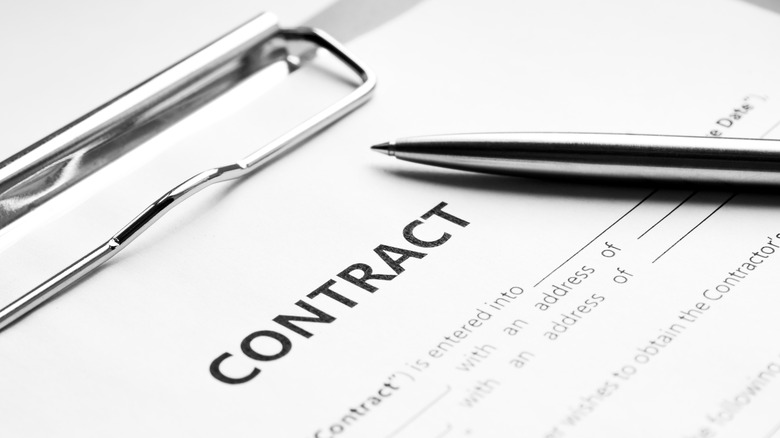15 Best Tips For Hiring A Home Remodeling Contractor
Are you looking for the best tips for hiring a home remodeling contractor? You're in the right place! We've put together a list of best practices that can help you find the most efficient expert for the job. Since so many horrifying stories and contradicting information abound when it comes to home upgrades, we're here to make sure that you start on the right foot.
Our article is a simple, step-by-step guide for hiring a home remodeler, irrespective of the size of your project. You will find in-depth discussions about everything relating to your big remodel — budgets, permits, legalities, contractor bids, credentials, insurance, etc. We will teach you how to look into prospects through research, reviews, and interviews, per Consumers' Checkbook, to ensure that they are legit and more than capable of carrying out your vision.
We hope that, after reading this article, you will start this wonderful process with confidence. Let's begin!
1. Identify your needs
The first step is to check your vision board. What's on it? Is it a U-shaped kitchen layout, dreamier master suite, or backyard makeover? Identifying your remodeling needs is a crucial step in creating a beautiful home. It's also an excellent way to determine the kind of expert to hire. For instance, if it's a simple task like repairing a deck or patching drywall, you may need a handyperson, notes Angi. But if you're thinking of something more complex like a home extension or adding a walk-in closet to your bedroom, then a remodeling contractor is the way to go.
2. Do your research
After clearly defining your project, one of our best tips for hiring a home remodeling contractor is to do your homework. Get acquainted with your project and read everything you can on the internet. For example, an essential remodeling tip we picked up from Houzz is that your toilet shouldn't be the first thing you see when you open your bathroom door. It's not aesthetically pleasing, and we can see why! But beyond authoritative sources, speak to other homeowners, too. Ask about their home remodeling experience, get recommendations — more on that later — and soak in their triumphs and regrets.
3. Determine your budget
At the end of your research, you should know the ins and outs of your project — well, not like an expert, but to an informed consumer level. Your research should also answer financial questions and help you create a budget. We can't stress the following point enough: go with a number you can afford and be upfront. A good remodeling contractor will respect your finances and tell you the services you can expect, according to Angi. Some may help with budgetary allocation and work with you to set money aside for the inevitable. Pro tip: Always choose the contractor that offers payment schedules.
4. Get recommendations
Of course, the best people to speak to are other homeowners who have, ideally, home remodeling or renovation experience. Friends and family can be helpful, too. Another of our best tips for hiring a home remodeling contractor is to check the database of the National Association of the Remodeling Industry (NARI). It's an excellent place to find certified and insured remodelers in your area. Don't set a hard limit on the number of contractors to discover. The more recommendations you receive, the more experts you discover, the better your chances of finding the perfect match for your project.
5. Look into each contractor
What worked for someone may not work for you. This explains why it's necessary to research all the home remodelers in your arsenal. Focus on each expert and check if they have proven experience with your type of project. Now, dive deeper. Are they insured and accredited? Do they have a website and/or social media presence? Did you find testimonials and reviews about their work on third-party websites or offline sources? How long have they been in business? Does it appear legit? To verify the validity of a company, Chron suggests checking in with your state's business department.
6. Interview via phone
After sifting through your list, we recommend making a quick phone call to each of your prospects. You should find their contact information and availability on their websites. American Financing notes that one of the best tips for hiring a home remodeling contractor is to ask questions, such as:
- Have you taken on a project of this size?
- How will you pull the necessary permits?
- How long do you envision everything will take?
- Can you give me a list of previous clients?
- What are your credentials?
- How many projects do you run at a time?
- What precautions will you take to protect my property?
7. Meet the shortlisted contractors
This is where you schedule an in-person meeting with the four to six contractors that you feel could get the job done. Tell them about your vision, ask further questions, and listen to their answers for reliability, availability, professionalism, and assuredness. Be sure to note how you feel around them. The remodeler you choose will spend many hours in your home, so your comfort is paramount. Keep in mind that a wonderful personality can be a smoking mirror, but efficiency always lies in proven experience. Pro tip: Unsatisfactory responses could lead to problems down the road, writes House Logic.
8. Investigate the facts
It's not enough to take their word for it — after the interview, call your state's consumer protection agency office and check consumer databases like the Better Business Bureau to see if they have a history of professional disputes. You should also reach out to a contractor's former clients and ask about their experiences with them. If possible, request a tour of the finished project. Here's one of our best tips for hiring a home remodeling contractor: Always confirm their credentials and get proof of insurance and bonding. To authenticate the insurance and/or resolve insurance issues, contact your insurance agent, says Grange Insurance.
9. Get written bids
This is a good time to narrow down your list and select at least three contractors who tick all the right boxes. Reach out and get written bids without discussing your budget, yet. A punctilious remodeler who knows the details of your vision will deliver an itemized bid consisting of a dollar-by-dollar breakdown of all the various aspects of the project. This includes the cost of labor, materials, profit margins, and other expenses. Nolo advises: Compare the bids and eliminate the lowest option. It could be a sign that the contractor is desperate for work, inefficient, or uses low-quality materials.
10. Take your time
Though we've given you several good tips for hiring a home remodeling contractor, this one is on our favorite list: Don't make an immediate decision. Take your time, weigh your options, analyze the bids, and if you're dissatisfied, get even more contractors on board. Read the fine prints on all the estimates and contracts, and if possible, seek legal counsel. Our point here is simple: trust your intuition and go with what aligns with your vision, finances, and expectations, per DDK Construction Inc.
11. Choosing your contractor
To help you hire the best home remodeler for your project, consider the following. Firstly, hire a local contractor. They are accessible and more likely to be familiar with the building codes in your area. Second, evaluate their availability. Since your contractor could be working on multiple projects at a time, it's crucial to be sure of their commitment to yours. Third, consider the bid. Typically, the materials account for about 40% to 45% of the total cost, and the profit margin takes about 15% to 20%. The rest covers the overhead, Carnegie Mellon University explains.
12. Discuss payment schedules
As we mentioned earlier, in one of our best tips for hiring a home remodeling contractor, you must be specific about financing — how much you're paying and when it's due. Start by discussing your budget and working with your contractor to create a payment plan. For large projects, a good rule of thumb is paying 10% when you sign the contract, 3 payments of 25% throughout the project, and 15% upon completion when you're satisfied with the outcome. You can also look into other payment formats, such as progress payments and retainage, says Levelset.
13. Create a comprehensive contract
Hire a lawyer or draw up a contract to reflect every minute detail of your project, agreements, and discussions thus far. If you chose the latter option, we recommend letting a lawyer review the contract. According to House Logic, the standard home remodeling contract must state that the contractor will secure all the necessary permits and approvals. It also includes the following information:
- Name of homeowner and contact information
- Name of contractor and contact information
- Type of home remodeling project
- Start date and end dates for the project
- Payment schedules
- Process for amending original project terms
14. Anticipate setbacks
Because home remodeling isn't an exact science, you must make room for setbacks. Acts of God, such as natural disasters and events that are utterly out of human control, can slow down speedy projects and sometimes, affect your budget. Remodeling delays can also include pre-existing home conditions, weather challenges, slow permit and inspection processes, lack of scheduling, inaccurate estimations, decision fatigue, and correcting former DIY errors. One of the best tips for hiring a home remodeling contractor that we picked from CRD Design Build is that you can solve some of these issues by having a contingency budget.
15. Protect your investment
Before work begins on your property, meet your insurance agent to discuss coverage. Remodeling can change the value of your home, which in turn, can impact your homeowner's insurance policy. Be sure to keep the conversation going while the project is ongoing, as you don't want to invest thousands of dollars for nothing. If you're unsure about notifying your insurance company due to the size of your project, Forbes has a good rule of thumb you can use. If remodeling would increase the cost to rebuild your house after damage, you should contact your insurance company.















